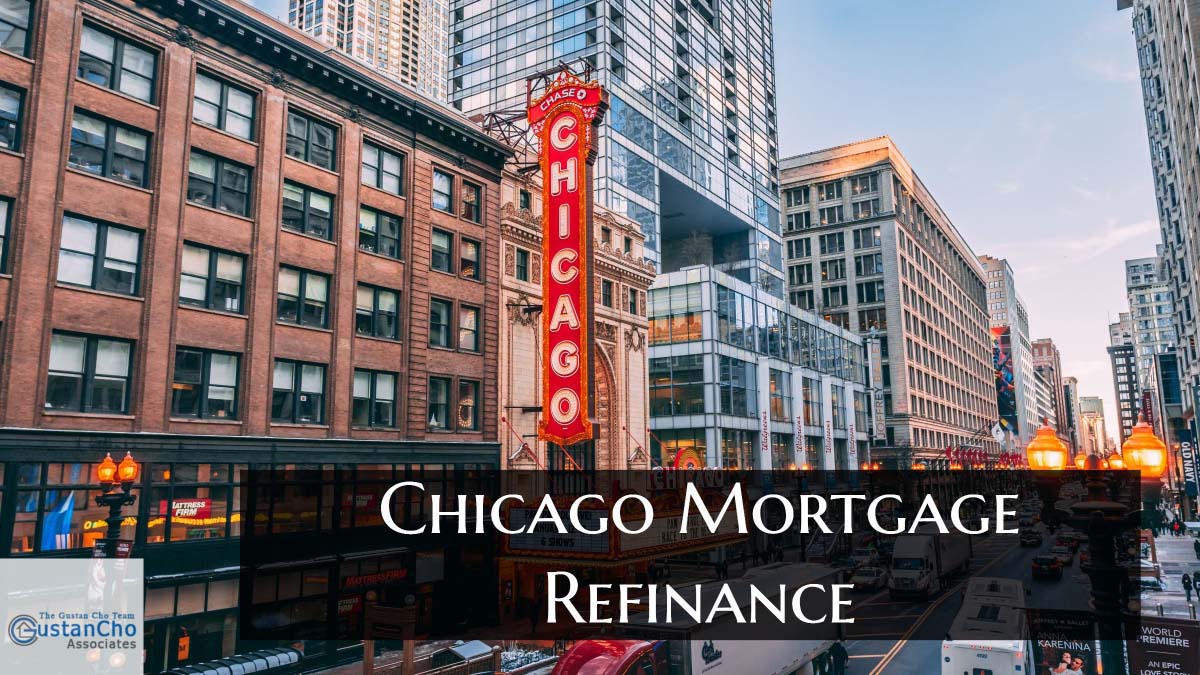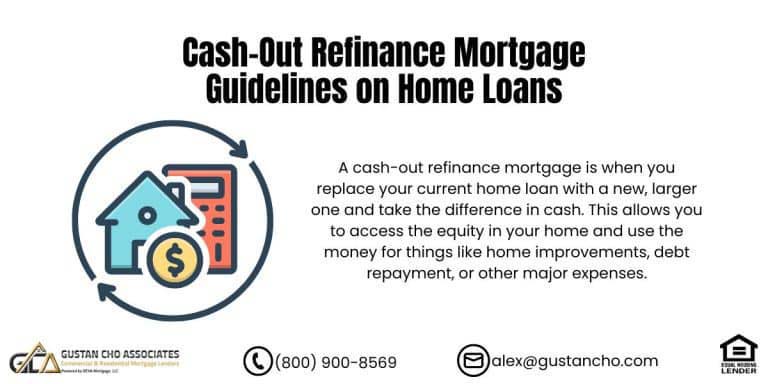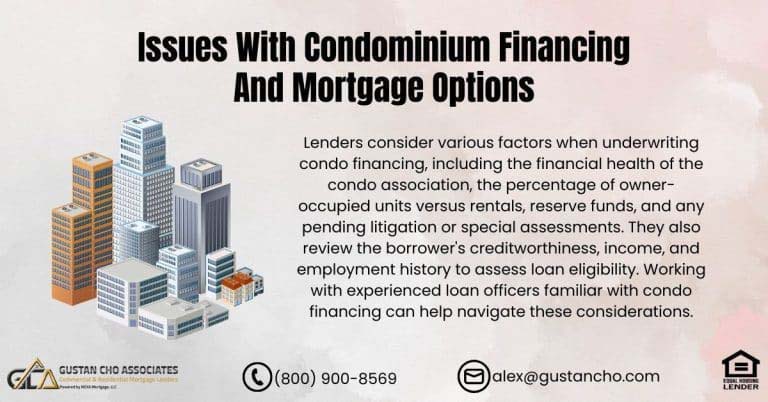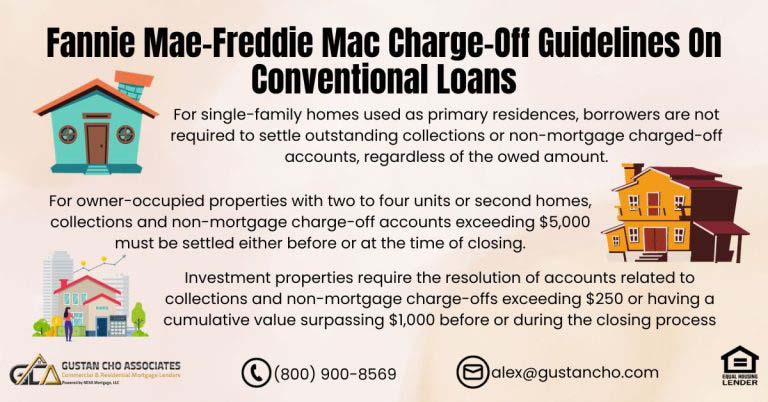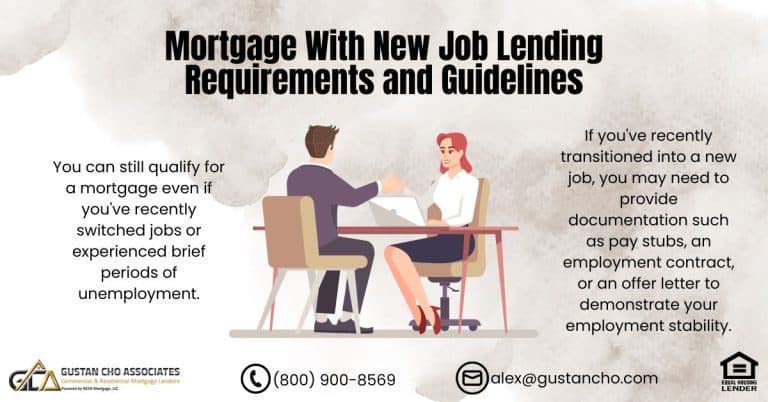Refinancing your home shouldn’t feel like a maze. If you’re hunting for a lower monthly payment, a shorter term, or cash for debt consolidation or home upgrades, this Chicago mortgage refinance guide explains the options, the costs, the timeline, and how to avoid low-appraisal roadblocks—using simple steps you can follow today.
Quick take: You don’t need perfect credit for a Chicago mortgage refinance. You need clarity on your goal (payment, term, or cash), a realistic estimate of your home’s value, and a quote to check break-even before you lock. The team at Gustan Cho Associates specializes in tough files and no overlays—so even if another lender said “no,” we may still say “yes.”
Key Takeaways (Read This First)
- Start with your goal: A Chicago mortgage refinance should solve one problem —a lower payment, shorter term, or cash-out for debts/projects. Decide first, quote second.
- Run the 60-second break-even: Costs ÷ monthly savings = months to break even. The refi likely makes sense if you’ll keep the home longer than that number.
- You may not need an appraisal: FHA Streamline and VA IRRRL often skip appraisals, which speeds up a Chicago mortgage refinance—great when condo values or comps are choppy.
- Cash-out is about equity + comps: Your home value and equity set the limit for debt consolidation or renovations. Prep tight, recent comps to avoid low-value surprises.
- Costs can be offset: Use lender credits to reduce out-of-pocket expenses; you’ll trade a slightly higher rate for lower cash due at closing.
- The typical timeline is 3–5 weeks. We front-load title, verifications, and appraisal prep to keep your Chicago mortgage refinance moving.
- Credit doesn’t have to be perfect: Higher scores price best, but no overlays at GCA means we often approve strong files that other lenders decline.
- If the appraisal is low, act fast: Check errors, supply better comps, and file a Reconsideration of Value. Many Chicago mortgage refinance files win value back with a clean ROV.
- You don’t have to restart at 30 years: Pick a custom term (e.g., 20 or 22 years) to keep payoff timing while lowering interest.
- Local matters in Chicago: Taxes, condo questionnaires, and neighborhood comp selection can make or break your outcome—lean on a team that works in Chicago files daily.
Should You Refinance Your Chicago Home Right Now?
When rates move, rules of thumb get thrown around. Ignore the noise and run a quick, personal test. A Chicago mortgage refinance is about your numbers, your goals, and how long you plan to keep the home.
Lower your Chicago mortgage payment fast
Compare today’s rates, terms, and buydowns to cut your monthly bill.
Simple 60-Second Test: Payment, Term, or Cash
- Lower payment: If today’s quote beats your current interest rate and the monthly savings recoup closing costs in 24–36 months, your Chicago mortgage refinance often makes sense.
- Shorter term: If you can handle a 15–20-year payment without straining your budget, you’ll cut total interest dramatically—even if the rate change is modest.
- Cash-out: Add up high-interest balances or project costs; if consolidating debts at a lower mortgage rate frees up meaningful cash flow or increases long-term value (new roof, essential repairs), a Chicago mortgage refinance with cash-out can pay for itself.
Break-Even Math (No Spreadsheet Needed)
Break-even months = Estimated closing costs ÷ Monthly payment savings.
If you’ll keep the home longer than that, a Chicago mortgage refinance is worth a closer look. If your goal is cash-out, compare total interest on your current debts vs. a single, lower mortgage rate—plus what you’ll do with the freed-up cash flow.
Refinance Options in Chicago (Pick What Fits Your Goal)
Chicago’s housing stock is diverse, from classic bungalows to downtown condos and two-flats. That variety changes how appraisals and pricing work, but the main loan options are straightforward. Each path below can be set up as a Chicago mortgage refinance tailored to your needs.
Rate-and-Term Refinance (Lower Payment or Shorter Term)
A rate-and-term Chicago mortgage refinance replaces your current loan with a new one that changes the interest rate, the term, or both—without taking cash out. This is the clean, simple route if you’re focused on payment relief or shaving years off the mortgage.
Why borrowers choose it:
- Payment relief with minimum friction
- Option to reset to a fresh 30 years or choose a custom shorter term (e.g., 22 or 20 years) to stay on track
- Strong pricing when credit, income, and equity are solid
Cash-Out Refinance (Debt Consolidation or Projects)
A cash-out Chicago mortgage refinance lets you borrow more than your current payoff and take the difference in cash at closing. Homeowners use it to eliminate double-digit credit card rates, finish repairs, build reserves, or fund investments.
Keys to success:
- Home value and equity drive how much you can take.
- Expect an appraisal; prepare great comps (more on this below).
Compare your blended interest today (cards + mortgage) to one new payment after your Chicago mortgage refinance—including how much cash flow you’ll free up.
FHA Streamline (Often No Appraisal)
Already have an FHA loan? An FHA Streamline Chicago mortgage refinance can usually lower your rate/payment with no appraisal and reduced documentation. It’s designed for speed. Even if another lender says “overlays,” GCA’s no-overlays approach can make the difference.
Typical advantages:
- Light documentation
- Often faster closings
- Flexible when you don’t have a lot of equity or when home values are uncertain
VA IRRRL (For Veterans and Service Members)
If your current loan is VA, the VA IRRRL (Interest Rate Reduction Refinance Loan)—also known as the VA Streamline—is a Chicago mortgage refinance option built to lower rates and payments with a simplified process.
Why veterans like it:
- Focused on payment reduction
- Streamlined underwriting
- Potentially no appraisal or minimal documentation, depending on the file
Refinance Costs in Chicago: What You’ll Actually Pay
Every Chicago mortgage refinance includes some costs, just like your original closing. With smart structuring, many borrowers minimize or offset these charges.
Typical Closing Cost Items
- Lender fees: underwriting/processing
- Third-party fees: appraisal (if needed), credit, flood cert
- Title & settlement: search, insurance, closing
- Government: recording, transfer where applicable
- Prepaids/escrows: interest to month-end, initial taxes, and insurance funding
Pro tip: We can often use lender credits—accepting a slightly higher rate to cover part or all of your costs—so your Chicago mortgage refinance is near zero out-of-pocket. Sometimes, that small rate trade-off is worth it if your break-even window is short or you prefer to conserve cash.
Break-Even Example
If your costs are about $3,500 and you save around $180 monthly, you will break even in about 19 to 20 months. If you plan to live in the home longer than that, refinancing your mortgage in Chicago could be a good option. If you choose lender credits, the cost is included in the interest rate, so you may break even right away but save slightly less each month.
Lock your rate with confidence
Get a pricing strategy with float-down options in a moving market.
Appraisals in Chicagoland: Avoid Low-Value Surprises
Appraisals are expert opinions, not guarantees. Three appraisers can produce three numbers. In neighborhoods with mixed housing types, consider frame vs. brick, gut rehabs vs. dated interiors; variance can widen. That’s why a Chicago mortgage refinance needs a simple appraisal game plan.
If Your Appraisal Comes in Low—Do This First
- Read the report carefully. If applicable, check bed/bath count, GLA, basement finish, garage, recent improvements, and condo assessments.
- Pull better comps. Stay as close as possible in location, style, age, size, and sale date. The same school zone helps. Avoid outliers.
- Submit a Reconsideration of Value (ROV). Organize a 1-page cover letter with bullet points showing why your comps are stronger.
- Consider a second appraisal (if program, lender, and time allow) when you have compelling data.
A prepared, clean ROV request often moves the needle. Our team does this regularly for Chicago mortgage refinance clients who need every equity dollar.
Credit, Income, and Equity: What Lenders Look For (Plain English)
Every approval balances these three:
Credit Score
Lenders usually see a higher credit score as a good sign that you’re financially responsible, which means you might get better loan deals and lower interest rates. But don’t worry if your credit score isn’t perfect—there are still options for people with varying scores. If you want to boost your score before applying, try paying down some small balances, fixing any mistakes on your credit report, or even using rapid rescore services if you need to.
Income
For those employed on a W-2 basis, lenders usually require recent pay stubs and W-2 documents to verify income levels. Self-employed individuals have different requirements, often needing to submit tax returns or other alternative documentation based on the specifics of the loan. Additionally, certain streamlined loan programs might allow for less stringent income documentation, especially for mortgage refinancing options in Chicago.
Equity/LTV
The amount of equity you have in your home significantly impacts your mortgage options and flexibility with lenders. A higher equity percentage can afford you more choices. It may help protect you against lower-than-expected appraisals during the loan process. Preparing comparable sales (comps) before getting your home appraised can strengthen your position and help mitigate low-appraisal surprises.
How Long a Chicago Refi Takes (and How We Speed It Up)
Most Chicago mortgage refinance files close in 3–5 weeks once we have documents. Your timeline depends on appraisal speed, title work, condo questionnaires (for condos), and how fast conditions are cleared.
Our fast-track process:
- Day 1: Application + disclosures e-signed
- Day 1–2: Title ordered, VOE requested, appraisal scheduled (if needed)
- Week 1: Conditional approval targeted (depending on program)
- Week 2–3: Conditions cleared; appraisal/ROV handled if required
- Week 3–5: Clear-to-Close and scheduling
We pre-index title and chase third-party docs early so your Chicago mortgage refinance isn’t stuck at the finish line.
Real-World Appraisal Story (What We Changed)
A homeowner was expecting their place to be worth around $800,000 based on online estimates and what neighbors were saying. The homeowner did research comps and went to websites like Zillow and Redfin.
The appraisal came in at $650,000, stopping the Chicago mortgage refinance. We reviewed the report, found two superior comps within a tighter radius and the same school boundary, and documented interior upgrades that the first appraiser minimized. After a clean ROV package, the value increased enough to proceed—keeping the LTV within program limits and unlocking a strong rate-and-term win. Preparation turned a no into a yes.
FHA Streamline and VA IRRRL: Why They’re Powerful in Chicago
FHA Streamline Chicago Mortgage Refinance
The FHA Streamline program is a great choice for Chicago homeowners who have existing FHA loans and want to refinance. This program lets you lower your monthly mortgage payments without needing a new appraisal, making the process easier. It is especially helpful for condo owners whose property values can change or for those who have not built up much equity in their homes. The focus on quick and simple steps makes it a popular option for eligible homeowners looking for financial relief.
VA IRRRL Chicago Mortgage Refinance
The VA Interest Rate Reduction Refinance Loan (IRRRL) helps veterans and active-duty service members lower interest rates on their existing VA loans. This loan has a simple process with minimal paperwork, making closing easier and faster. Borrowers can take advantage of good market conditions quickly and enjoy lower monthly payments sooner. The VA IRRRL is one of the quickest refinancing options for eligible veterans in Chicago, making it a valuable financial tool.
If a bank blocked your streamline with overlays, talk to Gustan Cho Associates. Our no-overlays approach often approves strong files that other lenders can’t.
Close smoothly with attorney-coordinated support
lear milestones from disclosures to final figures for an on-time closing.
Taxes, Insurance, and Chicago-Specific Considerations
- Property taxes: Cook County cycles and reassessments can raise escrow needs temporarily; we’ll estimate your escrow cushion so your Chicago mortgage refinance payment is accurate.
- Condo HOAs: Expect a condo questionnaire and master insurance review. Budget time for management companies that respond slowly.
- Two-flats and multi-units: Make sure the appraiser gets interior access to all units and a clean income/expense picture if applicable.
When to Lock Your Rate (Practical Guidance)
- Have your docs ready first. You want to lock when the file can move quickly.
- Know your break-even. A small day-to-day rate swing doesn’t matter if your Chicago mortgage refinance still beats your break-even by months or years.
- Consider a float-down. In some cases, a lender offers a one-time float-down if rates improve before closing. Ask whether it’s available and how it works.
Common Issues That Delay Refinances (And How We Prevent Them)
Last-Minute Credit Changes
When considering a mortgage refinance, it’s crucial to maintain your credit profile until the process is complete. Opening new accounts or making significant purchases can negatively affect your credit score, which lenders monitor closely during refinancing. To avoid complications or delays in securing funds for your Chicago mortgage refinance, it’s best to refrain from any financial activities that could alter your credit standing.
Missing Insurance Updates
Before finalizing your mortgage refinance, it’s essential to keep your homeowners and, if applicable, flood insurance policies up to date. Lenders require proof of active insurance with the new mortgage clause included. If these updates aren’t made in time, it could cause delays in the refinance process. Ensuring that your insurance policies are ready to bind at the time of closing will help facilitate a smooth transition.
Title Surprises
Title issues, such as old liens or discrepancies in name variations, can lead to significant delays in the refinancing process. These complications typically surface during the title search, often requiring additional time to resolve. To mitigate this risk, we take proactive steps to pre-pull and clear any potential title issues early, ensuring a smoother refinancing experience without unexpected setbacks.
Why Work With Gustan Cho Associates on Your Chicago Mortgage Refinance
- No overlays. If agency guidelines allow it, we aim to approve it.
- Tough files welcome. Self-employed, credit blemishes, complex properties—we work on these every day.
- Speed with precision. We front-load title, verifications, and appraisal prep so your Chicago mortgage refinance closes on time.
- Local knowledge. From bungalow comps to condo questionnaires to Cook County tax quirks, we structure your file for the realities on the ground.
Ready to Refinance in Chicago?
If you want to drop your payment, speed up your payoff, or pull smart cash for consolidation or projects, let’s run the numbers together and map the fastest route. Your Chicago mortgage refinance starts with one quick call.
Talk to a Chicago loan officer today — no overlays, fast answers.
Borrowers who need a five-star national mortgage company licensed in 50 states with no overlays and who are experts on Chicago mortgage refinance, please contact us at 800-900-8569, text us for a faster response, or email us at alex@gustancho.com.
Chicago Mortgage Refinance FAQs:
What Credit Score do I Need for a Chicago Mortgage Refinance?
We approve a wide range of scores. Higher scores help with pricing, but our no-overlays approach means we often say yes where others say no.
Do I Always Need an Appraisal?
Not always. While FHA Streamline and VA IRRRL may not require an appraisal, cash-out and many conventional refis do.
How Much Can I Take in Cash-Out?
It depends on program rules, your home value, and equity. We’ll estimate this on a quick call before you lock your Chicago mortgage refinance.
Can I Roll Closing Costs Into the Loan?
Often yes. Or we can use lender credits to offset them, making your Chicago mortgage refinance near zero out-of-pocket.
How Fast Can We Close?
With quick docs and smooth third-party responses, 3–5 weeks is common.
Will a Shorter Term Make Sense Even if My Payment Rises?
If your budget can handle it, a 15–20-year Chicago mortgage refinance can slash total interest and help you own the home free and clear sooner.
What if My Appraisal is Low?
We’ll help you submit a Reconsideration of Value with tighter comps and error corrections. Many Chicago mortgage refinance clients win back the needed value.
Can I Refinance After Late Payments?
Program rules vary by timelines and seasoning. Share dates; we’ll map the earliest path to a Chicago mortgage refinance.
Is a Cash-Out Refi Better Than a HELOC?
If you want a fixed rate and single payment, a Chicago mortgage refinance with cash-out can beat a variable-rate HELOC. But HELOCs are flexible for future borrowing. We’ll run both.
Will Refinancing Reset My 30-Year Clock?
Only if you choose it. We can match a custom term so you don’t “start over” while still gaining the benefits of a Chicago mortgage refinance.
This article about “Chicago Mortgage Refinance: Payment, Cash-Out, and Closings” was updated on October 23rd, 2025.
Get accurate numbers for Chicago taxes & insurance
Estimate PITI with local escrows so your budget matches reality




